Resources
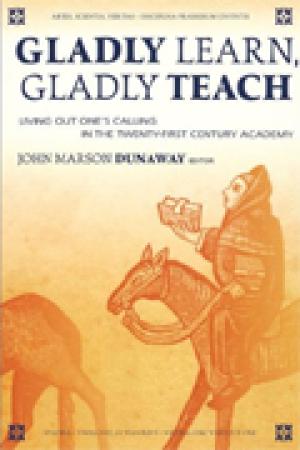
These essays come from scholars in a wide variety of fields: not just theology, but law, literature, political science, education, and philosophy. The essayists are teacher-scholars who genuinely seek to live out the sometimes-competing vocations of professor and believer. Though most of them teach in church-related institutions, they not only affirm the need for a clear theological vision on which to base institutional and pedagogical planning; they also stress the importance of diversity, pluralism, and true academic freedom. (From the Publisher)
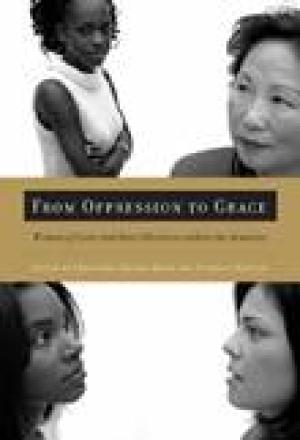
From the Publisher This book gives voice to the experiences of women of color - women of African, Native American, Latina, East Indian, Korean and Japanese descent - as students in pursuing terminal degrees and as faculty members navigating the Academy, grappling with the dilemmas encountered by others and themselves as they exist at the intersections of their work and identities. Women of color are frequently relegated - on account both of race and womanhood - into monolithic categories that perpetuate oppression, subdue and suppress conflict, and silence voices. This book uses critical race feminism (CRF) to place women of color in the center, rather than the margins, of the discussion, theorizing, research and praxis of their lives as they co-exist in the dominant culture. This book makes salient three characteristics of critical race feminism. Just as it is places emphasis on the application of theory to real life issues, the authors' narratives address concerns about the academic community, home, and family. Just as CRF supports a discourse of resistance, the book provides a forum for different voices as multi-representations of the counterstories against the acceptance of the dominant culture and the status quo. And, finally, the contributors' stories reflect CRF's emphasis on narrative to deepen the understanding of their lives as women of color. The first part of the book addresses the issues faced on the way to achieving a terminal degree: the struggles encountered and the lessons learned along the way. Part Two, Pride and Prejudice Finding Your Place After the Degree, describes the complexity of lives of women with multiple identities as scholars with family, friends,and lives at home and at work. The book concludes with the voices of senior faculty sharing their journeys and their paths to growth as scholars and individuals. This book is for all women of color growing up in the academy, learning to stand on their own, taking first steps, mastering the language, walking, running, falling and getting up to run again, and illuminates the process of self-definition that is essential to their growth as scholars and individuals.

Chronicles the development of the intellectual culture of the Western university and proposes an approach to university education that keeps faith with central Christian doctrines. (From the Publisher)
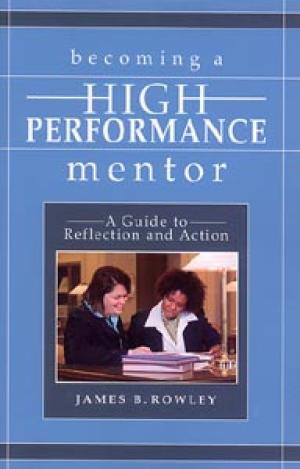
High-performance mentors are not born. Even experienced educators need training in order to provide constructive support to entry-year teachers. James B. Rowley's mentoring framework has been used to successfully train thousands of teachers to acquire the six essential behaviors of high-performance mentoring: committing, accepting, communicating, coaching, learning, and inspiring. With more than twenty years of experience in training mentor teachers, Rowley blends real-life stories with established research to help readers * Understand mentoring as a performance continuum with escalating developmental stages * Improve assessment, communication, and coaching skills * Reflect on the mentoring process and analyze mentoring relationships * Utilize mentoring as a pathway to personal and professional growth Designed for both experienced and novice mentor teachers, this book will also be an enormously useful resource for mentor program coordinators, trainers, staff developers, and principals who want to assure that participants grow in their teaching practice as a result of the mentoring experience. (From the Publisher)
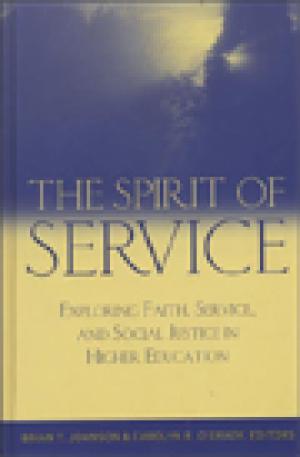
In The Spirit of Service , the contributing authors explore the intersection of faith, service, and social justice in higher education. Reflecting upon the role that higher education plays in preparing future generations of citizens and leaders, this book asserts that spirituality and values necessarily involve one's person—and that educators must begin to connect student learning with the human experiences of faith, service, and commitment to social justice. Each of the authors describes a teaching experience in order to critically reflect upon the divide in academic culture between responsible, rigorous, intellectual competence and personal values. The authors' lessons in success and failure are meant to provide guidance for all institutions that are committed to preparing young students to lead lives of leadership and civic engagement. Divided into three parts, this book: * Explores the meaning, practice, and implications of religions or spiritually motivated service * Offers specific examples from faculty for integrating faith or spiritual perspectives with service, including what has worked and what dilemmas remain * Focuses on specific dilemmas and implications for engaging in service for social justice Containing a wealth of practical suggestions and strategies, The Spirit of Service represents a conversation in progress; it is an attempt to understand how to help undergraduates integrate service and spirituality for the purpose of social justice. (From the Publisher)
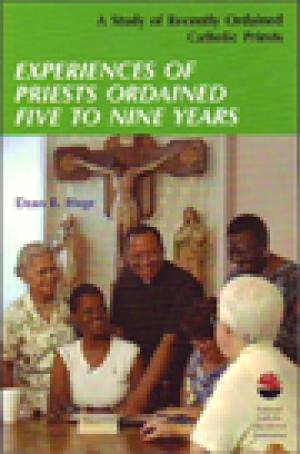
"This is a valuable study, following up on Dean Hoge's groundbreaking study on priests ordained 1 to 5 years. This is a critical study of a critical time in a priest's life and, as always, Dean Hoge makes a critical contribution to our understanding, offering a solid basis beyond anecdotal impressions, for t he formation of helpful policies and programs to assist these servants of God." Rev. Dan Danielson, pastor, Diocese of Oakland (From the Publisher)
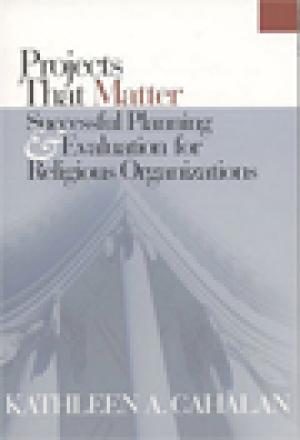
Projects That Matter introduces project leaders and teams to the five basic elements of project design and describes in detail a six-step process for designing and implementing a project evaluation and disseminating evaluation findings. Written for the nonexpert, leaders in religious settings will find Cahalan's guidance clear and invaluable. Presenting evaluation as a form of collaborative inquiry, Cahalan show how leaders can use evaluation design to develop effective project plans and prepare case statements for donors or grant proposals for foundations. She introduces project planning and evaluation as mission-related practices and invites leaders to consider how their tradition's particular mission and beliefs influence the way they plan and evaluate. Cahalan concludes the book by making explicit her own theological presuppositions—that the virtues of discernment, stewardship, and prudence are essential for good project planning and evaluation. About the Author Kathleen A. Cahalan is assistant professor of Pastoral Theology and Ministry at St. John's University School of Theology & Seminary in Collegeville, Minnesota. She served as evaluation coordinator for Lilly Endowment's religion division from 1996 to 2000. (From the Publisher)
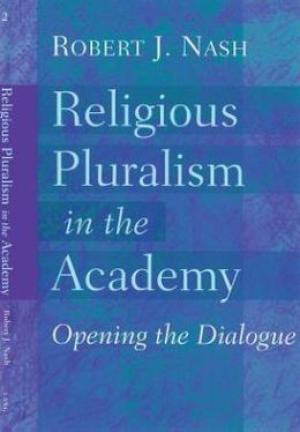
This book argues that American colleges and universities need to enlarge their understanding of pluralism and multiculturalism by sponsoring open, challenging, spiritually and educationally revitalizing conversations among students about genuine religious difference. Although religious difference is a pivotal component of cultural pluralism, too often today it gets ignored, marginalized, or sugar-coated in higher education. Together administrators, faculty, and students must take the initiative to tranform the academy into an exciting space for robust and respectful religious dialogue throughout the campus. This book offers a number of concrete examples and strategies in each chapter for achieving this objective. (From the Publisher)

What is actually happening on college campuses in the years between admission and graduation? Not enough to keep America competitive, and not enough to provide our citizens with fulfilling lives. When A Nation at Risk called attention to the problems of our public schools in 1983, that landmark report provided a convenient "cover" for higher education, inadvertently implying that all was well on America's campuses. Declining by Degrees blows higher education's cover. It asks tough--and long overdue--questions about our colleges and universities. In candid, coherent, and ultimately provocative ways, Declining by Degrees reveals: - how students are being short-changed by lowered academic expectations and standards; -why many universities focus on research instead of teaching and spend more on recruiting and athletics than on salaries for professors; -why students are disillusioned; -how administrations are obsessed with rankings in news magazines rather than the quality of learning; -why the media ignore the often catastrophic results; and -how many professors and students have an unspoken "non-aggression pact" when it comes to academic effort. Declining by Degrees argues persuasively that the multi-billion dollar enterprise of higher education has gone astray. At the same time, these essays offer specific prescriptions for change, warning that our nation is in fact at greater risk if we do nothing. (From the Publisher)
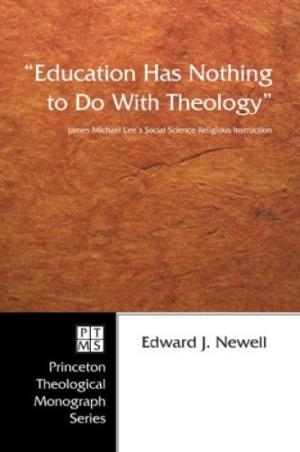
Does education have any relation to theology? How do the educator's worldview commitments speak to his or her practice of education? James Michael Lee brought a definite answer to these questions -- a firm no to the relations question, and an advocacy for empirical findings over and against any speculative or theoretical positions in reply to the commitments question. Lee claimed to have a universal, neutral metatheory for all religious education, a theory that would apply to all religious educators in any and every religion. But in proposing his theory he overlooked the way that empirical facts express worldviews. This book is a detective story, tracing commitments that lay underneath empirical "neutrality." In the process the reader will see avenues that unmistakably link education to theology. Education turns out to be a thoroughly worldview - conditioned process. This new work is essential reading for professors and students in both religious and general education. (From the Publisher)